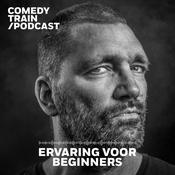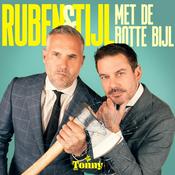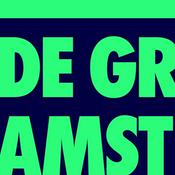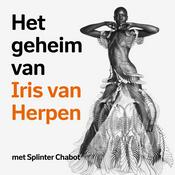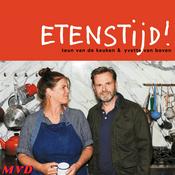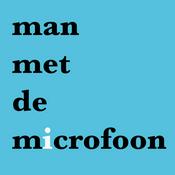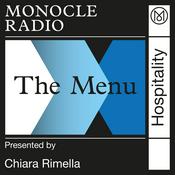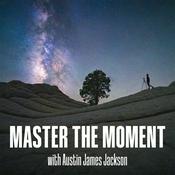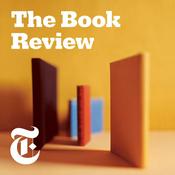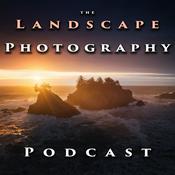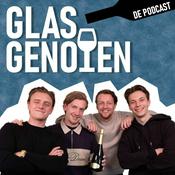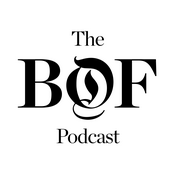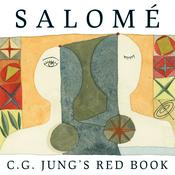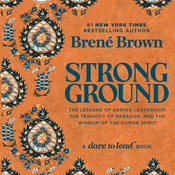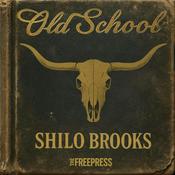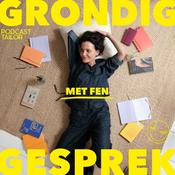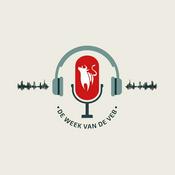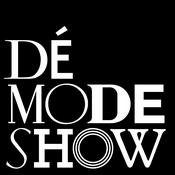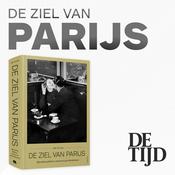504 afleveringen
- Peter Jakob Kühn made the wines at Weingut Peter Jakob Kühn in Germany's Rheingau region for many decades before retiring and passing the family winery on to his son Peter Bernhard Kühn.
Peter Jakob, who was born in 1954, alludes to the constrained economic situation that existed in the German countryside following the Second World War. He recalls his grandfather, who had lived through two World Wars, and the relationship that his grandfather had with the rest of the family. Peter Jakob then describes meeting his wife and taking over the family winery in 1979 in the wake of his father's death. He recalls what steps he took to improve the quality of the wines and add to the size of the estate in the early days after assuming control. He contrasts his approach to the vineyards with the post-War emphasis on high yields that some of neighbors pursued. Peter Jakob speaks about a trip to Burgundy that served as an early inspiration. He also describes the setting and landscape of the area within the Rheingau where the winery is situated.
Peter Jakob converted the estate to Biodynamic farming, and he describes the very personal reasons for that and other key decisions. As the quality of the wines improved, so did Peter Jakob's level of satisfaction with his own wines and their renown in the critical press. Peter Jakob describes how his mindset changed in response to both praise and some failure from others to understand the direction he was taking the wines. Specifically, he addresses the 1999 vintage for the winery and the malolactic conversion that took place in that year and others afterwards. He then talks about how a malolactic conversion changes the characteristics of a Riesling, and describes his vision for what a Riesling can be. Then he contrasts that vision for a Riesling with the stereotype of a racy, fruity German Riesling, which he was trying to avoid. Looking back from this vantage point, Peter Jakob describes the importance of his experimental phase in the early 2000s, as he tried different techniques in the winery. He also pinpoints his motivations for making those experiments and changes in the winery. He further discusses dry Germany Riesling and his thoughts on the topic, which are intertwined with a change in the climate as well as his personal experience. As the interview comes to a close, Peter Jakob talks about handing off the winery to his son Peter Bernhard and how he has experienced the change.
This episode also features commentary from:
Clemens Busch, Weingut Clemens Busch
Tomoko Kuriyama, Chanterêves
See Privacy Policy at https://art19.com/privacy and California Privacy Notice at https://art19.com/privacy#do-not-sell-my-info. - Matt Dees is the winemaker at JONATA, The Hilt, and The Paring, wineries which are located in California's Santa Barbara County.
Matt recalls studying plant and soil science, and then his first job at a winery, at Shelburne Vineyard in Vermont. He then describes a chance encounter with a bottle of Staglin Family Cabernet Sauvignon, which prompted a phone call to the Staglin family and a trip to California to visit. Soon enough, Matt was working at Staglin, alternating between vintages there and in New Zealand at Craggy Range Winery.
Matt discusses various early influences on his winemaking, including Andy Erickson, Doug Wiser, Adrian Baker, and Michel Rolland. He touches on learning to blend for texture and structure, with an approach to blending for the mid-palate. Matt also notes the handling of press wines, and when blending decisions are made. He talks about avoiding blending for aromatics.
Matt contrasts the harvest conditions in New Zealand and in the Napa Valley in the early 2000s, as well as the resulting wines. He further talks about how some of the elements of each can be found in the wines of Santa Barbara County, and about his own transition to making wines there at JONATA. He emphasizes the diurnal shift in Ballard Canyon, the difference between the daytime and nighttime temperatures in the vineyard.
Matt speaks of Santa Barbara County - and specifically Ballard Canyon - as a young region, noting the wide range of grape varieties that have been planted at JONATA as they try to figure out what works well at the site. Matt also addresses the ageing curve of the JONATA wines. He distinguishes between ageing as surviving and ageing as evolving.
Matt addresses the fundamentals of the wines that he is responsible for, including harvesting and winemaking decisions. He details his approach to picking Sauvignon Blanc at different ripeness levels for the same eventual wine. He talks about a purity of fruit as an overrated concept, and explains his approach to Cabernet Franc. He shares the nuances behind picking decisions for Cabernet Franc, Syrah, and Sangiovese. He touches on the peculiarities of Sangiovese during fermentation and maturation. Matt also addresses what is necessary for a successful Merlot. He talks about Viognier, and whether or not he blends some into his Syrah.
In terms of vineyard decisions, Matt discusses own rooted Cabernet Franc and Syrah, and what possibilities own rooted vines present. He talks about trial blocks of Assyrtiko, Picolit, Furmint, Xinomavro, and possibly Nerello Mascalese, as he searches for grape varieties that may do well in drought conditions. Building on that discussion, Matt touches on the characteristics of Xinomavro and Assyrtiko as wines from Ballard Canyon.
After the owners of JONATA purchased further properties, Matt was presented with the opportunity to make regular trips to Burgundy, and to produce Chardonnay and Pinot Noir for The Hilt. The Hilt is centered around the vineyards of Radian and Bentrock in the Southwest corner of the Sta. Rita Hills appellation, in California. Matt talks about that area and those vineyards specifically; discussing the exposition, soil type, and peculiarities of the sites. He talks about the wines from Radian and Bentrock, which include Chardonnay, Pinot Noir, Riesling, and Syrah. He details the winemaking protocols for both the Pinot Noir and the Chardonnay, and how his approach to both has changed over time. He talks about what may happen next at the property. He shares as well a frank discussion of drinking windows for Sta. Rita Hills wines.
This episode also features commentary from:
Andy Erickson, who co-owns Favia Wines and consults for a number of other wineries in California
See Privacy Policy at https://art19.com/privacy and California Privacy Notice at https://art19.com/privacy#do-not-sell-my-info. - Meike Näkel and her sister Dörte run the Meyer-Näkel winery in the Ahr region of Germany.
As a winery, over 90% of Meyer-Näkel's production is of red wine, and most of that is Spätburgunder (Pinot Noir). Meike explains that the historical roots of red wine production in the Ahr region may stretch back to the 14th century, and that there may have been Spätburgunder planted in Ahr in the 19th century. She discusses the situation for the red wines of Germany in general and the situation for wine in the Ahr in the 1970s and 1980s. Meike also talks about how her father Werner Näkel significantly expanded the production of the winery by acquiring vineyards in the 1980s and later. Meike distinguishes between the sorts of concentrated dry red wines from limited grape yields her father was making from Spätburgunder, and the more mass production sweet red wines that at one time were more common from the Ahr. She also touches on how her father learned about wine as an autodidact, traveling to regions like Burgundy and speaking with vigneron like Henri Jayer about various topics related to the production of Pinot Noir.
Meike discusses the evolution of the German wine consumer and the popular taste for wine within Germany in the second half of the twentieth century until now. She notes some of the top German dry red wine producers of the 1980s and 1990s, a group which included her father Werner. She also talks about the shift at the winery as she and her sister Dörte took on more decisions for the property and the wines. Meike describes going to Burgundy for an internship with Dominique Lafon of Comtes Lafon in Meursault. She remembers tasting the Meyer-Näkel wines with Dominique and getting his feedback on winemaking techniques such as a cold soak maceration and a delayed malolactic conversion, which she then implemented back home. Meike talks about using winemaking techniques to increase the fruit aspect of wines from the Ahr that typically show more savory notes owing to the climate and rock type of the vineyards. She further notes the encounter with biodynamic farming techniques that she saw at Comtes Lafon, and how that encounter affected the evolution of the vineyard farming at Meyer-Näkel.
Meike compares and contrasts the wines of her father with the wines that she made with her sister at the start of their work at the winery, and then again to the wines that they are producing more recently. She talks about the old German Pinot Noir clones and how they are different from the newer Pinot Noir clones from Burgundy. Meike also details what using a mix of both types in the vineyards can mean for the wines. She notes that their region has been affected by climate change from 2003 onwards and that this has affected their approach to the vineyard work. She discusses how climate change in Germany and in Europe has led to a change in the weather during the summer months. She expresses a belief that the more or less stable summer weather conditions of the past have given way to more extreme weather events during the summer months in recent years.
Meike talks about Spätburgunder, and what characteristics are important to find in a Pinot Noir wine. She also describes the characteristics of Frühburgunder, a grape variety that is similar to Spätburgunder. She touches on the characteristics of Frühburgunder in both the vineyard and in the resulting wine. Meike shares her process of rediscovering the characteristics of specific vineyards in her area, which is necessary because the German Wine Law of 1971 wiped out the hierarchical distinctions between some vineyards. She talks about distinguishing which were the best vineyards historically and now, and how she goes about that process. She then describes the characteristics of some the top Spätburgunder wines produced by the winery today.
Meike addresses some of the more recent winemaking changes at the winery, including looking for less extraction, performing fewer punch downs, and pursuing a reductive approach to winemaking. She also says that she tries to avoid pumping must or wine in the winery, preferring to use gravity instead. While she prefers less alcohol in the Meyer-Näkel wines today than those wines had in previous times, she also discusses chaptalization as an important option for producers of Pinot Noir. Meike says that new oak plays less of a role in the maturation of the wines at Meyer-Näkel today, and she explains why. She shares her thoughts about white winemaking at Meyer-Näkel, and about the white grapes in the vineyards they work with.
Meike talks about the recent increase in the amount of interest in German Pinot Noir from export markets. She touches on the diversity of wine styles for Spätburgunder produced from many different regions within Germany. She notes that Germany is the third largest producer of Pinot Noir today, when grouped by country. She addresses the question of whether lower alcohol levels and a sense of freshness can be found in German Pinot Noir today.
Meike discusses with incredible frankness a terrifying night in July of 2021 that changed both the direction of her life and the condition of the Meyer-Näkel winery. She talks about the pain of losing almost the complete stock of wine, as well as the winery facility. She recalls the experience of facing a catastrophic natural disaster in the midst of the Coronavirus pandemic, and the eventual comforts of returning to the normal work of a wine harvest later in 2021. She then shares her reasoning for deciding to stay in the Ahr after experiencing a tremendous disaster there.
See Privacy Policy at https://art19.com/privacy and California Privacy Notice at https://art19.com/privacy#do-not-sell-my-info. - Richard Sanford co-founded the Sanford and Benedict Winery and planted the Sanford and Benedict Vineyard. He founded the Sanford Winery, and he also founded the Alma Rosa Winery, all in Santa Barbara County, California.
Richard discusses his sailing career, working in the merchant marine, racing boats recreationally, and as an officer in the United States Navy. He talks about his travels around the globe, both before and after his service in the Vietnam War. He reflects on his short time working in business and education, and then his segue to planting a vineyard in what became the Sta. Rita Hills appellation of California. That vineyard became known as the Sanford and Benedict vineyard, and Richard co-founded the Sanford and Benedict Winery with Michael Benedict to produce wine from that vineyard. They had realized that Santa Barbara County, with its transverse mountain range, offered opportunities for growing vines in areas cooled by winds coming off the Pacific Ocean.
Richard remembers his introduction to wine and a bottle of Volnay, and his desire to plant Pinot Noir in the Sanford and Benedict Vineyard. He talks about the early days getting the vineyard going, in an area where Pinot Noir had not been planted previously. He discusses the geography and geology of the place, as well as the history of ownership there. Richard recalls converting a small barn into a winemaking facility, building the fermenters, and inviting his friends to harvest the first grapes from Sanford and Benedict. He also recalls the subsequent visit from the local sheriff. Besides the attention of the police, the activity at Sanford and Benedict also drew interest from wine writer Robert Lawrence Balzer, who wrote about the wine being made near Lompoc.
Richard talks throughout this interview about both the agriculture aspect and the business side of making wine. He notes that tax write offs were an impetus for the planting of many of the vineyards in Santa Barbara County in the 1970s. He talks about the difficulties of dry farming and of organic viticulture in that area. Richard recalls meeting his wife Thekla during a fun sail. And he talks about the tough breakup with his business partner Michael Benedict that would eventually lead Richard to found the Sanford Winery near to the original Sanford and Benedict Vineyard.
Richard recalls the Small Winery Technical Society, and the other winemakers in the group, such as Dick Graff (Chalone) and Josh Jensen (Calera). He talks about the role that that group played in his own development as a winemaker, and the camaraderie that he found amongst a group of friends who were also competitors in the wine business. Richard thinks on that period with a lot of fondness. He also speaks fondly of the period of time where he felt he was at the forefront of wine and food in California, meeting and sharing time with people like Julia Child and Robert Mondavi.
Richard shares his memories of visiting Burgundy and meeting vigneron and winery owners like Vincent Leflaive of Domaine Leflaive, Jacques Seysses of Domaine Dujac, and Aubert de Villaine of Domaine de la Romanée-Conti. Richard notes specifically what he learned while visiting Burgundy, and what he then brought back to his own winemaking work in California.
Richard notes how many more vineyards had been planted in the surrounding area by the time he started the Sanford Winery, a stark difference from when he first planted the Sanford and Benedict vineyard. He talks about the shifts in ownership for those vineyards over time. He talks about adding a Sauvignon Blanc to his white wine lineup, in addition to the Chardonnay. He touches on the specifics of the Sanford and Benedict Vineyard, in terms of how the wines from there taste. And he discusses the elaborate construction of the Sanford winery facility, an expensive project that obliged him to take on an additional financial partner in the Sanford Winery and would eventually lead to Richard's exit from the Sanford Winery that bears his name. Richard is frank in this interview about the challenges he faced in the wine business during his career.
Richard states that he has had to dust himself off and start over several times, such as when he founded the Alma Rosa Winery with Thekla after leaving the Sanford Winery. As with the winery projects Richard was involved with earlier, the Alma Rosa Winery is also in what is now referred to as the Sta. Rita Hills appellation. It is an area that saw increased interest from consumers in the wake of the movie Sideways, something Richard talks about in this episode. Richard would eventually be obliged to sell the Alma Rosa Winery, but was involved in planting vineyard parcels there. He continues to live and work in Santa Barbara County, an area which is now well-known for its success with the Pinot Noir grape.
See Privacy Policy at https://art19.com/privacy and California Privacy Notice at https://art19.com/privacy#do-not-sell-my-info. - David Rafanelli and his family own the A. Rafanelli Winery in the Dry Creek Valley of Sonoma County, California.
David relates the story of his Italian grandmother arriving in California in 1903, and beginning to make homemade wine in San Francisco. He explains how the family bought farm land in the Dry Creek Valley in the 1920s, thus beginning a 100 year stretch of working with vines within a 3 mile radius, something which continues today. The current winery housing A. Rafanelli was founded in 1973.
David took agronomy and crop science courses in Oregon in the late 1960s, and also went to school for viticulture in California. He has throughout his career compared and combined the wisdom that was passed on to him by his family members with the teachings he learned in school. David went to work for the Lambert Bridge Winery in the 1970s, allowing him the opportunity to contrast the situation of another winery with that of his own family. David’s dad, who passed away in 1987, typically worked with Zinfandel and complementary grape varieties at the Rafanelli winery. David convinced him to also plant Cabernet Sauvignon. David discusses the introduction of heat treated vines in the 1970s, and the prevalence of leaf roll virus prior to their introduction. He speaks about the failure of the AxR1 rootstock in California, and how that shaped the replanting of vines later on in the state. David emphasizes working a piece of land and the importance of being familiar with it.
The process of achieving an appellation for the Dry Creek Valley started in 1982, and David speaks about that, as well as the characteristics of the Dry Creek Valley in terms of climate, soils, and geography. He also talks about the challenges to Zinfandel presented by cooler and hotter years, and how he approaches blending from different sites within Dry Creek to achieve consistency. He further talks about the difference between making a wine just from Zinfandel versus blending other grape varieties into a wine that is mostly Zinfandel.
The A. Rafanelli winery began using new French oak barrels for Zinfandel in the mid-1980s, and David talks about the significance of that, as well as what the unfined and unfiltered approach implies for his Zinfandel based wines. David sums up the challenges that were associated with marketing Zinfandel outside of California in the 1980s, and the stylistic divergence of different types of Zinfandel: light Zin, white Zin, table wine, and the late harvest style. He talks about being in on “the ground breaking of premium wines” in California and points to a “big change” between the 1960s and 1990s. He recalls how fruit crops were removed from California and replaced with vines, whereas previously there had been more demand for those fruit crops.
David speaks at length about winery sales and production size, and points out that the job isn’t just making wine. It is also dealing with what nature gives, and then marketing bottles of wine. He explains why he focused on selling direct to consumers, instead of having someone else market and sell all the wine. He talks about patterning his marketing efforts on wineries like Stony Hill that sold direct through a mailing list. David suggests asking what the goal of a winery entering the wine business should be, and that the answer is “all on what you perceive as success.” He suggests avoiding a production size that ties a winery into permanent growth, and also having a plan for the wine that will be made before it is produced.
David is frank about the pressures on wineries in California to sell the winery instead of retaining a family business for generations. “Everything is working against that family winery,” says David, and he specifically warns against the hazards of increasing bottle production. “What is the definition of success?" asks David. "Success is happiness, success is making what you need to make.” David speaks about the significant roles two of his daughters hold at the family winery today.
David speaks about the Zinfandel grape and soil types: what Zinfandel prefers in terms of rocks versus clay. He also addresses the effect of soil type on Zinfandel ripening, as well as the thickness of the skins. Zinfandel is generally thin skinned, with tight clusters, and a ripeness that is not uniform, says David. He relates that the frustrations of growing Zinfandel are such that “if I was growing grapes, I probably wouldn’t grow Zinfandel to sell.” That being said, two thirds of the family winery production is Zinfandel. David suggests that Zinfandel is a grape that California largely has to itself, and that as such, he generally isn't competing with the rest of the world and other versions of that grape variety. He also summarizes the Dry Creek flavor profile for Zinfandel.
When discussing his winemaking, David says he aims for a long ageing style of Zinfandel that is not overripe. He talks about Bordeaux winemaking technique being used with Zinfandel. He talks about ageing the wine in the winery for a bit of time before releasing it to the public. He emphasizes cleanliness in the winery. He differentiates between punch downs and pumpovers, and what they means for both the fermenting juice and the skins. He talks about how they approach malolactic conversion and the pressing of grapes at the winery today.
David advises determining a wine style that you like and sticking to it, he relates the pleasures of working with hundred year old vines in Sonoma, and alludes to the "never ending process” of learning.
See Privacy Policy at https://art19.com/privacy and California Privacy Notice at https://art19.com/privacy#do-not-sell-my-info.
Meer Kunst podcasts
Trending Kunst -podcasts
Over I'll Drink to That! Wine Talk
A former sommelier interviews incredibly famous and knowledgeable wine personalities in his tiny apartment. He gets them to talk candidly about their lives and work, and then shares the conversations with you. To see new episodes sooner and to see all of the hundreds of back episodes in your feed, it is important to FOLLOW or SUBSCRIBE the show. It is free to do either, the show is free.Contact info-Email [email protected] for advertising, consulting, speaking, or guest inquiriesInstagram @leviopenswineWebsite illdrinktothatpod.com
Podcast websiteLuister naar I'll Drink to That! Wine Talk, Ervaring voor Beginners en vele andere podcasts van over de hele wereld met de radio.net-app
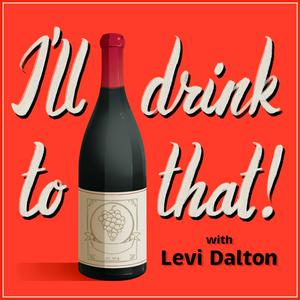
Ontvang de gratis radio.net app
- Zenders en podcasts om te bookmarken
- Streamen via Wi-Fi of Bluetooth
- Ondersteunt Carplay & Android Auto
- Veel andere app-functies
Ontvang de gratis radio.net app
- Zenders en podcasts om te bookmarken
- Streamen via Wi-Fi of Bluetooth
- Ondersteunt Carplay & Android Auto
- Veel andere app-functies


I'll Drink to That! Wine Talk
Scan de code,
download de app,
luisteren.
download de app,
luisteren.


